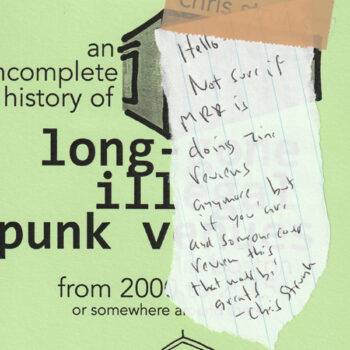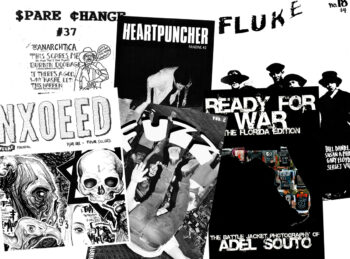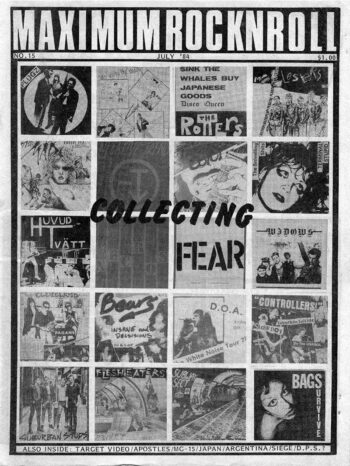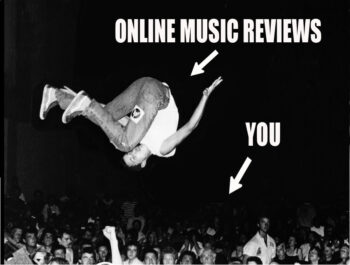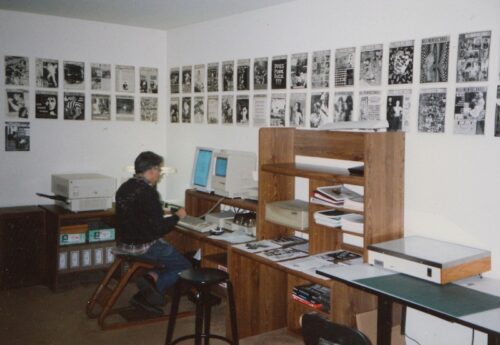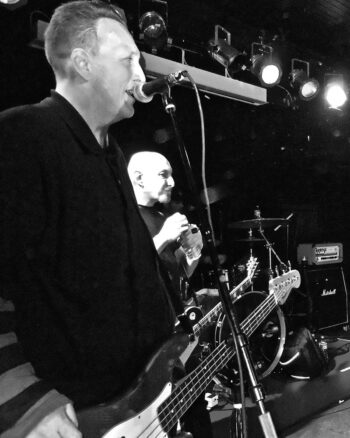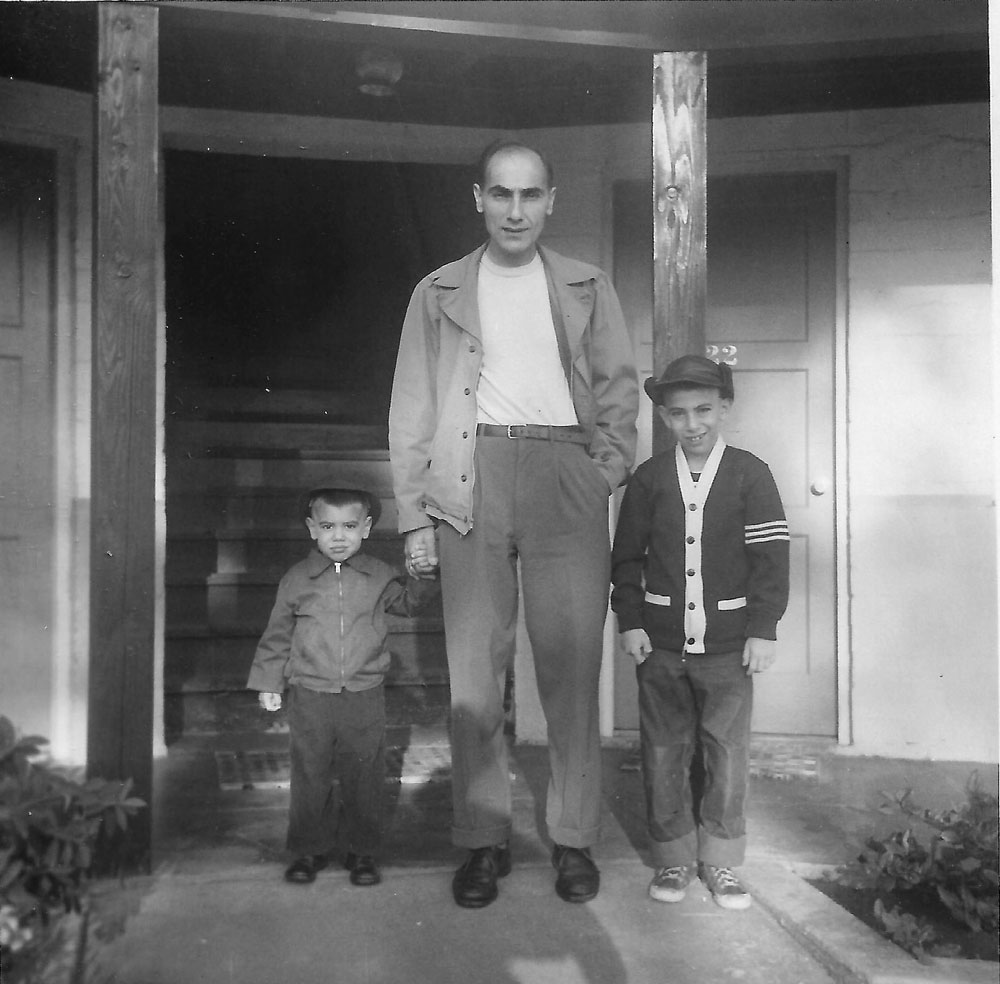The MRR archives unleashed! MRR #1 — 30 years ago today…
Can you believe Maximum Rocknroll magazine is 30 years old? Now that we can no longer be trusted, we’re finally free to toot our own horn, wallow in the past, and shake our fists at you damn kids! This month we’re commemorating our birthday with a 30th anniversary issue, a special radio show celebrating not only the magazine but 35 years of MRR Radio and 10 years of podcasting, and not last, and certainly not least, we are rolling out downloads of our MRR magazine archives!
We’ll be posting the earliest issue MRR magazine this month, and each post will have a special intro by an original Maximum Rocknroll shitworker. No one could have been a better choice to introduce this first issue — MRR #1, published in July 1982 — than Jumpin’ Jeff Bale himself!

When Paul Curran asked me to write a few words about the origins and early days of MRR for the magazine’s 30th Anniversary, I was originally at a loss for words. After all, the events in question took place thirty years ago, and I honestly cannot recall most of the details about the early founding of MRR. Moreover, since then there has been a lot of water under the bridge — some of it rather toxic — in terms of infighting within the punk underground. I can’t do much about the faulty memory part, all the more so given our not infrequent use of alcohol and drugs back then. But all of the bitter infighting that later developed seems, in retrospect, like little more than a tempest in a teapot. It’s the kind of thing that all too often happens within relatively small, insular subcultural and countercultural milieus, and it always seems to reach a fever pitch in direct proportion to the inability of those milieus to grow, flourish, and, ultimately, transform the wider culture. Since I no longer care or have any hard feelings about this, and haven’t even perused a copy of the magazine for more than ten years, I happily agreed to make a small contribution to MRR’s anniversary issue.
If anyone had suggested to the people who originally founded MRR — Tim Yo, myself, Ruth Schwartz, Jello Biafra, Mickey Creep (who was then Jello’s roommate), red-haired Mark and his girlfriend — that the magazine we were envisioning, however fuzzily, would continue to be published thirty years hence, we would all have said “no way!” or laughed out loud. If I recall correctly (and I may not be!), one day the idea of putting out a magazine version of the MRR Radio show just sort of popped into Tim’s head. He then consulted with Mickey Creep, who was then publishing Creep magazine, about the mechanics and logistics of putting out such a magazine, and then organized a few preliminary meetings to discuss the launching of MRR. Given Tim’s dedication and organizational skills, this idea soon became a reality. After a couple of issues, Mickey and Mark moved on to other projects, and Jello was too busy to perform any day-to-day tasks related to the zine. Tim, being a workaholic, did the lion’s share of the “shit work,” even after he had recruited numerous young volunteers to work on the zine, whereas my primary task was to edit the record review section, do reviews myself, and write some other things I felt inclined to write.
The primary goals of the magazine were to provide coverage of burgeoning punk scenes worldwide, to link punk scenes and scenesters together, to promote an anti-Establishment ethos, and to review every single punk record release. Although we were all caught up in the enthusiasm of the moment, were upset about the election of Ronald Reagan, and hoped that punk would somehow develop into a more influential culture of opposition, it was never our intention to manipulate or “recruit” young people within the punk underground. Even Tim, who had Maoist sympathies, did not view the MRR staff as some sort of a Leninist “vanguard party” that was designed to mobilize “the masses” for revolution, contrary to the absurd charges of some of our critics. We simply wanted to create a fun, exciting vehicle with which to promote our own ideas and musical tastes, and by extension to stimulate the growth and connectivity of the international punk counterculture. Tim, Jello, and I, in particular, had been obsessive, long-standing lovers and collectors of primitive rock’n’roll for decades, and despite all of its other aspects (some of which, even certain things I wrote, I now regard as cringeworthy), MRR was from the very outset primarily a labor of love by fans who were on a self-appointed mission to promote the best underground r’n’r, which at that juncture was punk. Anyone who claims otherwise is talking nonsense.
From the very beginning, Tim and I agreed that the record reviews in MRR should be short and concise. This was mainly because we did not want to emulate other music magazines, most of which featured long and often pretentious record reviews that usually revealed more about the authors’ narcissistic personalities than about the records being reviewed. This turned out to be a very wise decision, given the enormous and ever-increasing volume of punk records that were sent to MRR for review. It soon became almost unmanageable to review all of them even using our very short review format — it would have been utterly impossible had we opted for a longer review format.
It frankly amazes me that MRR has not only survived the departure of so many of its founders and core staff, but also the tragic death of Tim himself. That is not only a tribute to Tim’s extraordinary organizational abilities, but also to the fact that the magazine managed to inspire so much support and devotion (and an equal amount of hostility and hatred) amongst its readers. One should keep in mind that both love and hatred are emotions that can only be evoked by something that is regarded as very important by the lovers and haters, since one does not feel such strong emotions about objects that are regarded as trivial or unimportant. So here we are, thirty years later, and MRR still comes out like clockwork and, apparently, is still avidly read by certain segments within the punk scene. That is simply amazing!
If I have any retrospective regrets about the early days of MRR, it would be that at the time I was in a phase of my life in which a) I was espousing absurdly simplistic left-wing politics, and b) I was enamored of thrash-style (“hardcore”) punk. In short, when my politics were at their dopiest and when my musical taste was at its nadir.
On the matter of politics, for most of my life I have hated authoritarianism (and, worse still, totalitarianism) and been very contrarian, individualistic, and bitterly opposed to sectarian political “lines” of any kind. And like Mykel Board, I also love to play devil’s advocate and piss people off. (I’ve even manged to piss off Mykel a few times.) However, on two occasions — the first in the wake of the “police riot” at the 1968 Democratic National Convention in Chicago, the second when I first moved out to the Bay Area from the Midwest to attend graduate school at UC Berkeley, which coincided with the election of Reagan — I temporarily lost my senses, got caught up in the moment, and adopted simple-minded political views. We all go through various embarrassing phases in our lives, and this was one of those times. Within a few years I came to my senses and reverted to normal — being nauseated by the left, by the right, and by the center — for which “sins” I was accused by all sides of being in the “enemy” camp. So be it. If narrow-minded political fanatics on all sides of the spectrum don’t like you, you must be doing something right.
[Speaking of politics, the state of America is nowadays far worse than it was during the Reagan era. Indeed, compared to the collection of dim bulbs (Á la Palin and Rick Perry), regressive Christian right activists, pseudo-populist Tea Partiers, and “free market fundamentalists” who now dominate the Republican Party, Reagan was a veritable voice of sanity (who even believed — shock!, horror! — that the rich should pay higher taxes), even though he also initiated the deregulation policies that did so much to precipitate the economic mess we are now in. Meanwhile, the ever-increasing corruption of Congress by corporate lobbyists and the lack of effective regulation of the financial sector (thanks mainly to GOP intransigence, but with the acquiescence if not the collusion of all too many Democrats) have turned America into a virtual “banana republic,” in the sense that levels of economic inequality in this country are now approximating that of Third World countries and signs of serious infrastructural and cultural decline are everywhere. If Obama loses the next election, this process of decline will only accelerate. (Not that the Democratic Party is not an integral part of the problem, and the PC left is every bit as odious as ever, if not more so.) In short, given that we are all nowadays confronted by a host of acute structural and political problems, ideological posturing and the adoption of simple-minded politics of any kind — left, right, or centrist — are recipes for disaster. As history has repeatedly demonstrated, it is in times of crisis that the worst sorts of political and religious fanatics tend to come to the fore. Sadly, that is as true with respect to the most sectarian and fanatical segments of the Occupy movement as it is with respect to the most extreme elements of the Tea Party.]
On the matter of music, I embraced super-fast thrash punk for a time, probably because it seemed so extreme and over-the-top, and because it was exhilarating in the same way that the roar of a jet engine is exhilarating. But just like jet noise soon becomes annoying and obnoxious, so too did HC-style punk, at least for me. Hence, unlike the other subgenres of r’n’r that I have always loved — hard-edged British Invasion bands (e.g., the Stones, Yardbirds, Pretty Things, Troggs, Who), ’60s garage punk, rockin’ psychedelia (as opposed to the meandering, noodling, “progressive” type), proto-punk bands (e.g., the Stooges and Dolls), the best glam groups (e.g., Alice Cooper, T-Rex, the Hollywood Brats), mid-tempo ’77-style punk, neo-Mod, and Oi!, “hardcore” simply did not stand the test of time, so much so that I now pretty much detest that subgenre of music (especially its most macho and boneheaded manifestations). Of the thousands of records I currently own, only about ten of them are “hardcore” in terms of musical style (e.g., Black Flag, the Circle Jerks, TSOL, Minor Threat, Bad Brains, 7 Seconds, the Fartz, Terveet Kädet), and I almost never listen to any of them (except the early Black Flag stuff). So I strongly doubt whether I would even like most of the thrash records today that appeared in my Top Ten lists in the earliest issues of MRR. On the contrary, I’d probably be embarrassed to be reminded of what I had recommended back then.
Be that as it may, I once opined in a Hit List column that inveterate, obsessive r’n’r fans such as myself would still be hanging around long after the political activists, pretentious artistes, fashion-conscious phonies, and violent jock-like HC thugs had abandoned the punk scene, and I turned out to be correct. For example, even though I now live quite a ways from San Francisco and even further from Los Angeles, I will still make the trip to see great garage bands in cool underground dives, just as I’ve been doing ever since I was 16 years old — 45 years and over 6,000 gigs ago! With each passing year, I encounter less and less people who I once knew in the punk scene at these gigs. But — along with half a dozen other such fanatics — I’m still going out to see great bands, past and present, and will only stop when I am too physically incapacitated to continue. Sadly, I doubt that this can be said for the overwhelming majority of past MRR staff members and readers, most of whom are much younger than I am. Then again, some of those folks may simply be going to different types of gigs. Like the “hardcore” shows that I now avoid like the plague! Moreover, time permitting, I periodically write a few record reviews for Ugly Things, which in my opinion has been the world’s best r’n’r magazine for decades in terms of its extraordinarily high levels of editor and contributor expertise, factual information, writing panache, musical taste, and enthusiasm for “wild sounds from past dimensions,” including punk from the mid-1970s to the beginning of the 1980s. The lesson here is that inveterate rock’n’rollers never die — they just get older, uglier, and less energetic.
Finally, I’ll sign off now by saying “happy anniversary” to the magazine that I helped to establish three decades ago, even though we have long since parted ways.
—Jeff Bale
PDF download of MRR #1 now available in the MRR Webstore!
Read more of our MRR Archives series here.


